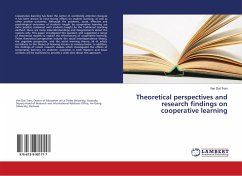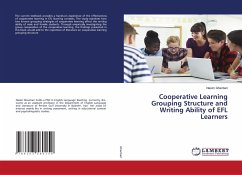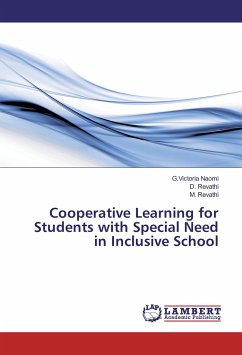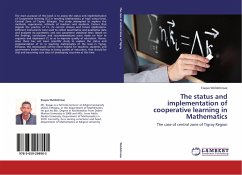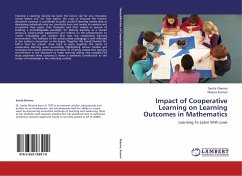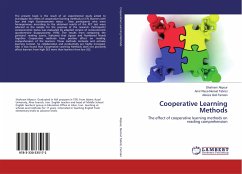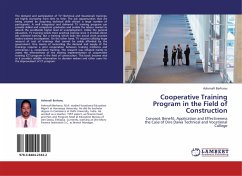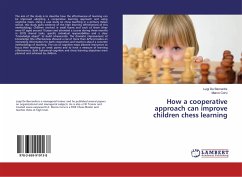
How a cooperative approach can improve children chess learning
Versandkostenfrei!
Versandfertig in 6-10 Tagen
15,99 €
inkl. MwSt.

PAYBACK Punkte
8 °P sammeln!
The aim of this study is to describe how the effectiveness of learning can be improved adopting a cooperative learning approach and using cognitive maps. Using a case study on chess teaching in a primary Italian school, this study gives evidence of the high learning effectiveness of this methodology. Children worked in small teams and each of them (they were 61 aged around 10 years and attended a course during three months in 2015) shared tasks, specific individual responsibilities and a clear "knowledge object" to build (chesscards). The dramatic improvement of knowledge (the effectiveness sh...
The aim of this study is to describe how the effectiveness of learning can be improved adopting a cooperative learning approach and using cognitive maps. Using a case study on chess teaching in a primary Italian school, this study gives evidence of the high learning effectiveness of this methodology. Children worked in small teams and each of them (they were 61 aged around 10 years and attended a course during three months in 2015) shared tasks, specific individual responsibilities and a clear "knowledge object" to build (chesscards). The dramatic improvement of knowledge (the effectiveness showed a rise of more than 42%) provides an interesting information for both researchers and teachers about a concrete methodology of teaching. The use of cognitive maps allowed instructors to focus their teaching on weak points and to have a measure of learning effectiveness. Both behavioral-cognitive and chess learning objectives were planned and achieved by children.



